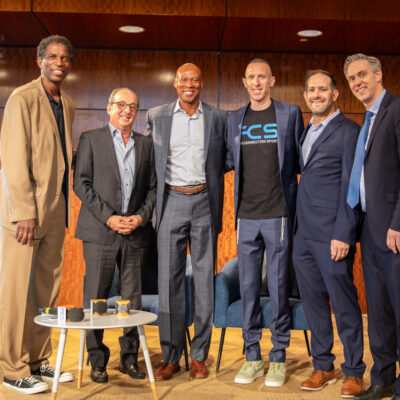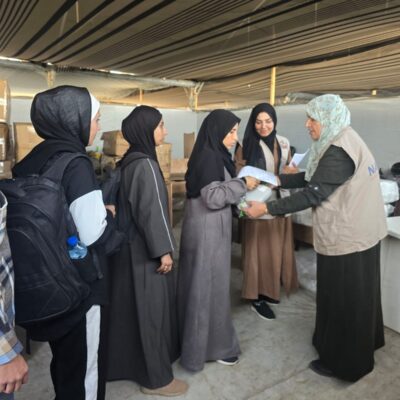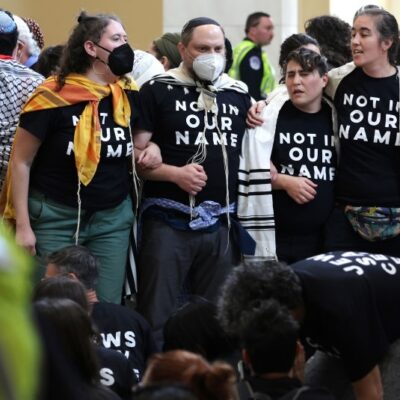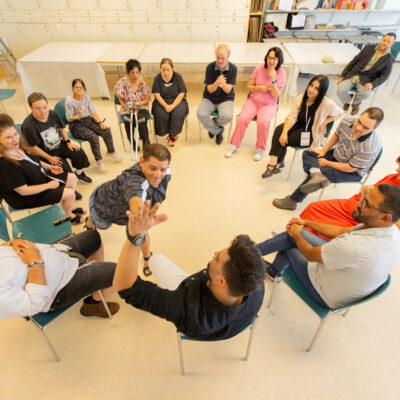Opinion
Stop the bleed
Making a ‘Ma’akeh’: Safety and security in the Hillel environment
In Short
As Rosh Hashanah approaches and college campuses welcome back students, Hillel professionals across the U.S. are getting together for what has become an expected part of new school year preparations: the active threat training.
As Rosh Hashanah approaches and college campuses welcome back students, Hillel professionals across the U.S. are getting together for what has become an expected part of new school year preparations: the active threat training. While terrifying in nature, these training sessions have become not only expected, but necessary in recent years. And while, statistically speaking, active shooter events are exceedingly rare, this training has become a professional, and even moral obligation. Look at the hostage situation that took place in Congregation Beth Israel in Colleyville, Texas, back in January. Rabbi Charlie Cytron-Walker credits his and his congregation’s survival to the active threat training they had been through before.
In my role as the manager of operations at the Bronfman Center for Jewish Student life at NYU, I recently facilitated a different kind of emergency preparedness training. Hillel professionals from schools across the tristate area came together to explore what it really means to uphold safety and security for Jewish students in our campus environments.

Shutterstock
We framed the day with Deuteronomy 22:8. In Deuteronomy, the Torah instructs us to build a ma’akeh, or guardrail, on every roof. We discussed: Active threats may be the proverbial slanted roof of the Torah. We questioned: Are drills, security guards and building upgrades our only guardrail against them? It seemed only fitting, given we were a room full of Jewish professional leaders, that we should embrace our tradition of questioning and examine the very premise that brought us together in the first place.
What we found was a shared desire to forge community – among the people that come into our Hillel everyday, with our neighbors and with our tristate Hillel colleagues. The ma’akeh has a literal interpretation: You’ve got to build that fence. Put in that alarm system. Apply for the grant to get the bulletproof doors. Train your staff to run, hide, fight and to “stop the bleed.” Empower them to be situationally aware. But what if we chose a more expansive understanding of the Torah’s commandment?
The ma’akeh extends to how we problem-solve together. The ma’akeh extends to what we as a community choose to do about the root causes of mass shootings. How can Hillel professionals be a positive force against the sort of hatred and alienation that would drive a person to hold congregants and their rabbi hostage on Shabbat? Or to pick up an AR-15 style rifle and fire on shoppers at a grocery store, as the assailant in my hometown of Buffalo, N. Y. did in May? We must consider.
We have a responsibility as leaders to be pragmatic – to prepare just like Rabbi Cytron-Walker and Congregation Beth Israel did. But Hillel professionals and other leaders in the Jewish community who are role models to young people have a responsibility to go beyond training in situational awareness, countering active threats and stop-the-bleed first aid procedures. We, as Jewish communal leaders, must also make a guardrail of ourselves by coming together to share information and best practices and perhaps most importantly, to enter into a sacred community of practice to consider and examine the root causes of the mass shootings that seem to be happening on repeat in America.
We can continue what Rabbi Lord Jonathan Sacks, of blessed memory, called our responsibility to “…never waste a crisis. Never stand still. Go out there, continue the Jewish journey, and be a blessing to the Jewish people and the world.” Bringing Jewish text and the tradition of questioning into what has become routine active threat training reminds us that the work we’re doing is holy work. And when we’re doing holy work, we’re responsible for considering not just what is pragmatic, but daring to be idealistic even for just a few moments. It’s our responsibility, even during the most routine of activities, to consider what the world could be and to make a ma’akeh of ourselves.
Jon Zeftel is manager of operations at the Edgar M. Bronfman Center for Jewish Student Life at NYU.

 Add EJP on Google
Add EJP on Google










